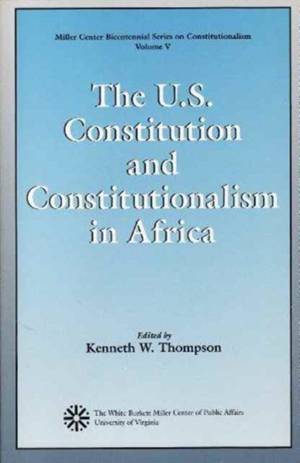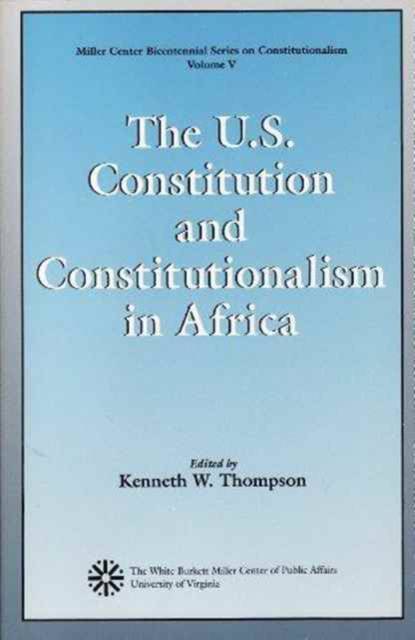
Door een staking bij bpost kan je online bestelling op dit moment iets langer onderweg zijn dan voorzien. Dringend iets nodig? Onze winkels ontvangen jou met open armen!
- Afhalen na 1 uur in een winkel met voorraad
- Gratis thuislevering in België vanaf € 30
- Ruim aanbod met 7 miljoen producten
Door een staking bij bpost kan je online bestelling op dit moment iets langer onderweg zijn dan voorzien. Dringend iets nodig? Onze winkels ontvangen jou met open armen!
- Afhalen na 1 uur in een winkel met voorraad
- Gratis thuislevering in België vanaf € 30
- Ruim aanbod met 7 miljoen producten
Zoeken
Omschrijving
More, perhaps, than any other world region, Africa is a living laboratory for observing the interrelation between American, European, and African ideas of constitutionalism. In the post-World War II era, America sought to bring freedom and self-determination to Africa in what we considered a correction of the policies of the European colonial powers. The one exception, which prevented Americans from claiming to be wholly anticolonial, was Libya. Elsewhere, we saw our goals as convergent with those of Africans and therefore likely to contribute to their political and constitutional growth. Africans saw us not only as anticolonial but domestically racist, as internationally espousing aims coinciding with theirs but domestically acting in ways antithetical to their values. One way or another, Americans influenced African developments, whether by example or by failure to practice what we preached. In either case, Africa embraced ideas such as national self-determination and racial equality which Americans had professed. It is within this broader context that the contributors to this volume have approached constitutionalism
Specificaties
Betrokkenen
- Auteur(s):
- Uitgeverij:
Inhoud
- Aantal bladzijden:
- 160
- Taal:
- Engels
- Reeks:
- Reeksnummer:
- nr. 5
Eigenschappen
- Productcode (EAN):
- 9780819176318
- Verschijningsdatum:
- 30/01/1990
- Uitvoering:
- Paperback
- Formaat:
- Trade paperback (VS)
- Afmetingen:
- 152 mm x 229 mm
- Gewicht:
- 453 g

Alleen bij Standaard Boekhandel
+ 86 punten op je klantenkaart van Standaard Boekhandel
Beoordelingen
We publiceren alleen reviews die voldoen aan de voorwaarden voor reviews. Bekijk onze voorwaarden voor reviews.











